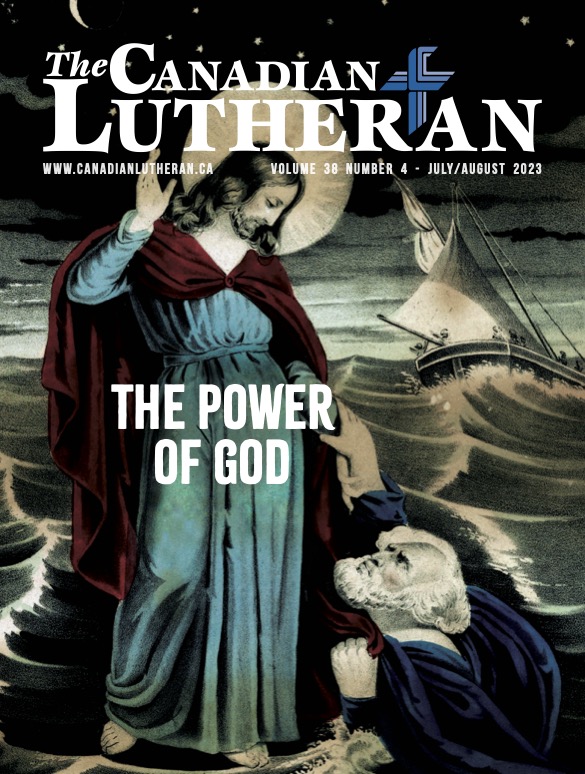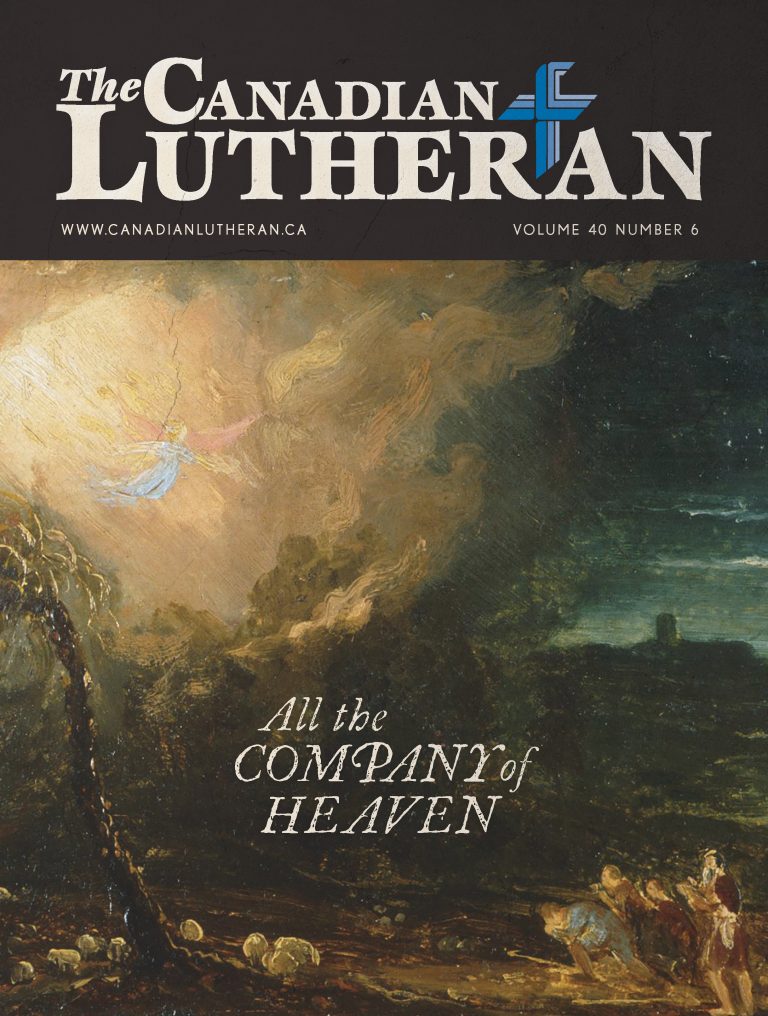The Power of God
 by Mathew Block
by Mathew Block
In the beginning, God created the universe. Then He stepped back and let things unfold as they would, without any further interference… These two sentences summarize in brief what we might call classical deism. On the basis of reason, deists are willing to admit that there is a God. But they deny that this God ever acts in a supernatural way. He simply set things in motion—established the laws of nature and the universe’s starting point—and then let them go, much as one might wind up an antique clock: the spring keeps unwinding, the gears keep turning, and the clock keeps ticking and tocking even after you step out of the room.
Deists disagree on whether this God has any real interest in humanity (and, consequently, whether we owe Him any real worship). But the portrait of God they paint seems to me one utterly remote and distant—a God either unable or unwilling to interfere in the created world. He does not interact or communicate with created beings like us. He performs no miracles. He does not answer prayers. He is simply too far off.
Such ideas stand in stark contrast to the God of Scripture. The Bible tells us that God remains intricately involved with the universe He has made. Yes, He created the world “in the beginning,” but He also continues to sustain it in the present by His power (Hebrews 1:3). He concerns Himself with every aspect of creation; for all things, from the smallest subatomic particle to the largest galaxy, hold together in Him (Colossians 1:17). We can well imagine God—reversing His words in Jeremiah—challenging the deist: “Am I God far off and not also a God who is near?” (cf. Jeremiah 23:23).
The Bible tells us that God remains intricately involved with the universe He has made. Yes, He created the world “in the beginning,” but He also continues to sustain it in the present by His power (Hebrews 1:3).
No, God remains deeply involved with the running of the world, and with everything and everyone in it. As St. Paul has said, “He is not far from each one of us” (Acts 17:27). But even though we believe this as Christians, we must confess we do not always act like we believe it. How often are we seized by fear and anxiety? How often do we “worry about tomorrow” (Matthew 6:25-34)? And yet our God is with us all the time—a very present help in times of trouble (Psalm 56:1).
The Bible records miraculous examples of that ever-present help. Think of the parting of the Red Sea. The destruction of the idol Dagon. The resurrection of the widow’s son. The three men in the fiery furnace.

Such miracles reach a peak in the New Testament. For here the presence of God is powerfully revealed in Jesus Christ—God in the flesh. He turned water to wine, healed the sick, walked on the waves, raised the dead, and ultimately reconciled us to the Father through His own death and resurrection. “There were many other things that Jesus did,” St. John writes simply. “If they were all written down, I suppose the whole world could not contain the books that would be written” (John 21:25). But the signs which are recorded in Scripture assure us that our faith in Jesus is not misplaced; He really is the Son of God (John 20:31).
Failing to take seriously what God says in the Bible about Himself and His power leads to all sorts of problems. Some people, for example, think Jesus merely a wise teacher. And yet, the miracles He performed speak powerfully to His divinity—filling our emptiness with His divine abundance, as Rev. Jim Chimirri-Russell reminds us (page six). Other people are quite willing to believe that God can perform miracles, yet treat Him like a sort of wishing well. But God doesn’t work that way. Our second feature explores this tension—what it means to believe that God can do miracles but nevertheless doesn’t always give us the miracles we ask for (page nine).
These errors—treating Jesus merely as a good teacher and treating the Father like Santa Clause—are examples of a wider tendency to reduce God into an image of our own making. And yet, if we are to truly understand the nature of God and His power, we must approach Him on the basis of His own self-revelation—something Rev. Dr. William Mundt reminds us of in our third feature this issue (page twelve).
Our God is indeed a God of power. But we must never lose sight of the greatest miracle of all: that the Son of God willingly came to take our sins upon Himself and suffer in our place. Through His death, we are forgiven. Through His resurrection, we have new life. This is the miracle which gives all other miracles their meaning. It is the Gospel—and it is the most precious demonstration of the power of God.
“I am not ashamed of the Gospel, for it is the power of God for salvation to everyone who believes…”
Romans 1:16
———————
Mathew Block is editor of The Canadian Lutheran and communications manager for the International Lutheran Council.






